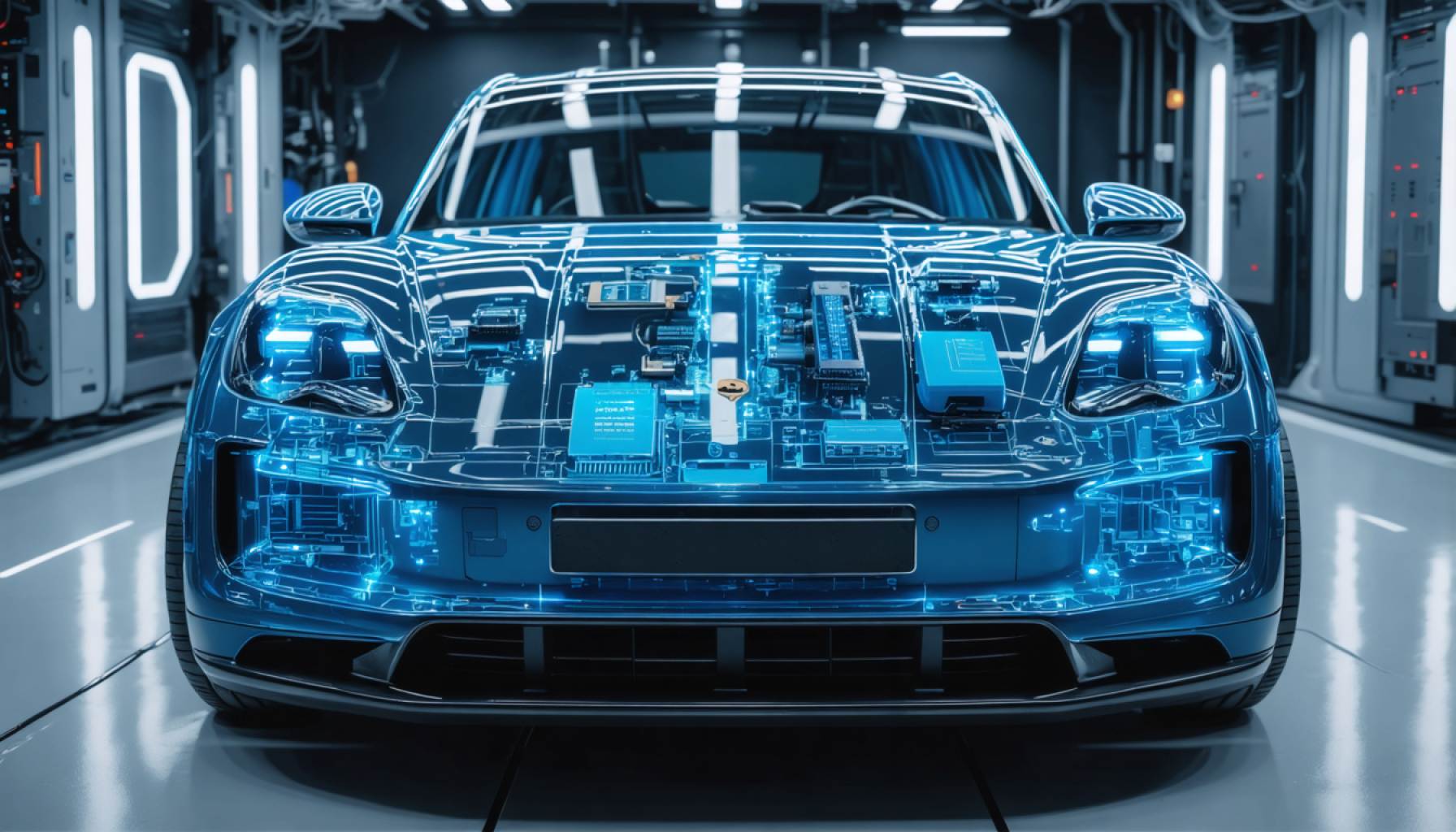- Porsche is transforming EV battery recycling into a key sustainability initiative, supporting a circular economy by reclaiming critical materials.
- The creation of “black mass” from recycled batteries is a central process, producing 65 tonnes of granulate to reclaim nickel, cobalt, manganese, and lithium.
- These reclaimed materials are purified to meet Porsche’s quality standards, ensuring high performance and reliability.
- Porsche’s ambitious project involves using these reclaimed elements in new battery cells, accelerating sustainability in future vehicle models.
- This initiative supports compliance with upcoming European regulations, requiring higher recycled content and traceability by 2031.
- Through this project, Porsche emerges as a leader in sustainable automotive production, aligning innovation with ecological responsibility.
Porsche has embarked on an electrifying journey to transform the once-daunting task of recycling high-voltage EV batteries into a cornerstone of their sustainability efforts. This ambitious pilot project advances the promise of a circular economy, where waste is molded into a goldmine of opportunity. By meticulously reclaiming critical materials such as nickel, cobalt, manganese, and lithium from the dense core of used batteries, Porsche has begun sculpting a future where the earth’s resources are harmoniously conserved.
The heart of this endeavor beats around the creation of “black mass,” a rich granulate produced from shredded remnants of used EVs. Already, a hefty 65 tonnes of this granular resource have emerged from development vehicle batteries. It’s a silent testament to the power of innovation—a glimpse into how discarded energy cells are reborn as vessels of potential.
Within Porsche’s meticulous refinery process, this “black mass” undergoes further purification, isolating elements that meet the esteemed quality benchmarks synonymous with the brand. Akin to alchemy, this transformation ensures that the materials maintain the high performance and reliability vital for the esteemed Porsche experience.
But the project extends beyond mere recycling. In its third and most daring phase, Porsche envisions integrating these reclaimed elements into new battery cells. These cells, forged from recycled content, will face rigorous real-world testing within future vehicle models. Barbara Frenkel, Porsche’s Executive Board Member for Procurement, highlights that this initiative is a testament to their bold ambitions, where sustainability and innovation coalesce into a formidable force.
By embracing this closed-loop system, Porsche fortifies its resilience against geopolitical instabilities affecting raw material supplies and charts a path to meet Europe’s stringent, upcoming battery regulations. These laws will demand higher levels of recycled content and meticulous traceability by 2031.
Through its proactive strides, Porsche not only pledges its allegiance to responsible resource management but also ascends as a pioneering leader in the world of sustainable automotive production. This strategic venture signals a broader narrative, one where industrial progress amalgamates with ecological stewardship, setting the stage for a more sustainable future on four wheels.
Porsche’s Electrifying Leap into Sustainable EV Battery Recycling
Exploring Porsche’s Innovative Journey in EV Battery Recycling
Porsche’s progressive initiative in recycling high-voltage electric vehicle (EV) batteries presents an intriguing blueprint for sustainable automotive development. The endeavor emphasizes resource conservation while championing environmental stewardship. Here, we further delve into aspects that weren’t fully explored, providing insights into Porsche’s advancements and their implications within the industry.
Deep Dive into Battery Recycling Innovation
Porsche’s creation of “black mass” from used EV batteries is a pivotal aspect of their sustainability strategy. This black mass, made up of valuable materials like nickel, cobalt, manganese, and lithium, is refined to extract high-quality materials suitable for new battery production. This process aligns with the principles of a circular economy, reducing reliance on virgin materials and minimizing environmental impact.
Key Facts:
– Process Efficiency: By refining the black mass, Porsche significantly reduces the carbon footprint associated with mining new materials.
– Quality Standards: The recycled materials meet rigorous quality benchmarks necessary for maintaining Porsche’s renowned performance standards.
Real-World Applications and Impact
Battery Regulations and Market Trends:
The European Union’s forthcoming regulations will require auto manufacturers to incorporate higher levels of recycled materials and enhance the traceability of battery components by 2031. Porsche’s initiative positions it favorably within this regulatory framework, which is likely to influence global markets as environmental policies become more stringent.
Industry Impact:
– Leadership in Sustainability: Porsche serves as an industry leader, demonstrating successful integration of sustainability within luxury automotive production.
– Supply Chain Resilience: By recycling materials, Porsche reduces dependency on raw material imports, mitigating impacts from geopolitical instability.
Addressing Common Reader Questions
1. What is the future potential of Porsche’s battery recycling initiative?
The initiative could drastically reduce reliance on new material mining by creating a sustainable loop of material reuse. As technologies evolve, this could become standard practice across the industry, steering global markets towards sustainable production.
2. How does Porsche ensure material quality in the recycled batteries?
Through rigorous purification processes, Porsche ensures the extracted materials meet high-quality standards, ensuring performance and reliability in line with the Porsche brand.
3. Can this process be applied to other automotive brands?
Yes, Porsche’s methods can potentially serve as a model for other manufacturers aiming to incorporate sustainability into their production cycles.
Tips for Sustainable Automotive Choices
– Research Brands: Choose manufacturers committed to sustainability, particularly those using recycled materials.
– Stay Informed: Awareness of regulatory changes can guide more environmentally conscious decisions.
– Support Innovation: Choose companies embracing new, sustainable technologies in production.
Conclusion and Recommendations
Porsche’s pioneering journey in sustainable EV battery recycling presents a future where luxury and ecological responsibility coexist. As regulations tighten, following in Porsche’s footsteps will be vital for manufacturers worldwide. Consumers should support brands committed to sustainability and innovation, aiding the industry’s transition to greener practices.
For more insights into sustainability and automotive innovation, visit Porsche’s official site.







